A Room with a View (1985)
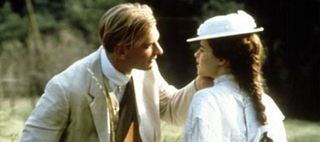
The Role: Lucy Honeychurch
Helena Bonham Carter made her breakthrough performance in this Merchant Ivory adaptation of E.M. Forster's novel. With barely any experience she bagged the lead in this production, which also featured revered talents such as Maggie Smith, Judi Dench and Daniel Day-Lewis.
The Brilliance: Her success in this movie is probably what got her linked with period dramas for so long, but there's nothing stuffy about her performance here. She brings a likeability to the impetuous young woman, stifled by the contraints of Edwardian culture.
Lady Jane (1986)
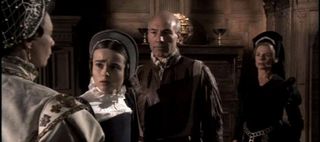
The Role: Lady Jane Grey
Bonham Carter nabbed the lead in another lavish period drama here, in the story of what happed to the English throne after the death of Henry VIII. She plays the tragic noblewoman who is married off to Lord Dudley (a very young Cary Elwes) in an attempt to secure the throne.
The Brilliance: Demonstrating her range at an early stage in her career, she eschewed the youthful exuberance of Room with a View to play it tormented and impassioned, as the reluctant queen who ends up falling in love with her arranged hubbie, before the powers that be turn on them.
Hamlet (1990)
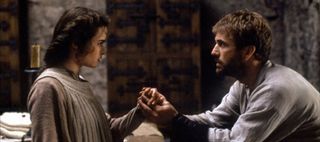
The Role: Ophelia
This was a leaner version of the Bard's play than Kenneth Branagh would go on to film, but there is something appealingly kinetic about Franco Zeffirelli's interpretation. It helps that he has Mel Gibson in Mad Max mode as the Dane, and the events thunder along at a considerable pace.
The Brilliance: Hamlet is a gift of a role for a thesp, and Ophelia's not too shabby either: the charming and beguiling noblewoman is driven to suicide by her tumultuous relationship with Hammy. Once again, the fresh-faced Bonham Carter holds her own amidst a seasoned cast.
Howards End (1992)
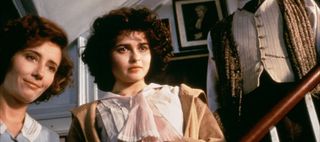
The Role: Helen Schlegel
Another Merchant-Ivory production for Bonham Carter, whose face was becoming a familiar fixture among the Brit stalwarts of these kind of lavish epics. It's another E.M. Forster adaptation set in Edwardian Britain, and it follows the fortunes of the various people who own the house 'Howards End'.
The Brilliance: Rather than just sitting around and looking pretty in a corset, portraying Helen allows Bonham Carter to run the full gamut of emotions, as she loses her bourgeois trappings as a result of her impulsive behaviour. Once again, she brings life to a potentially stuffy flick.
Frankenstein (1994)

The Role: Elizabeth
This version of Mary Shelley's literary monster fable was directed by Kenneth Branagh (whom Bonham Carter went on to date for a number of years). It's one of the more faithful adaptations of the novel, though it's not the most exciting or innovative.
The Brilliance: Yes, it was another period piece, but it gave her the chance to indulge her burgeoning gothic side. Elizabeth is the slightly icky love interest of Victor Frankenstein (she's his half-sister) who becomes the seriously icky love interest when her distraught hubby reanimates her dead corpse. Her character's arc is more affecting than what the Doc and his monster go through.
Mighty Aphrodite (1995)
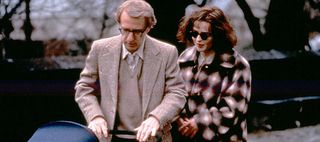
The Role: Amanda
This was a notable change of pace for Bonham Carter, and marked the first time a wider audience had seen her in a contemporary comedic role. This underrated Woody Allen comedy sees the neurotic one and his overbearing wife (Bonham Carter) adopt a baby who grows up to be a genius.
The Brilliance: The film isn't remembered as one of Allen's finest movies, but what is remarkable is how comfortably Bonham Carter adjusts to the shift in direction, riffing well with Allen as his impossible-to-please wife. As well as ditching the period dress, she trades her plummy tones for a spot-on US accent.
The Wings of the Dove (1997)
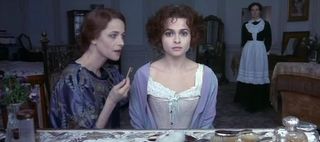
The Role: Kate Croy
She was back on familiar ground here: turn-of-the-century setting, literary origins (it's a Henry James adapation), and a seemingly-doomed love affair, but this doesn't feel like a case of 'same old, same old'. The plot focuses on the efforts of poor Kate's attempt to reclaim her family's former status by conducting a plan to inherit the wealth of a dying friend Millie (Alison Elliott).
The Brilliance: This ain't no straightforward character. In the face of hardship (her dad blew the family's income), and moral murkiness (she sends her lover to seduce her rich friend), Bonham Carter manages to keep Kate sympathetic, when she could have become hissable. It's the genuine friendship she develops with Millie that keeps the events compelling.
Fight Club (1999)
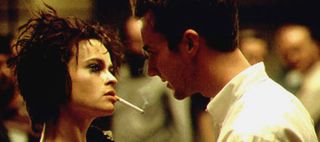
The Role: Marla Singer
David Fincher's era-defining movie was perhaps the first time that Helena Bonham Carter legitimately started being considered cool. Becoming an instant cult classic, Fight Club is a career highlight for everyone involved. Marla, The Narrator's love-hate interest, revealed a side of HBC that many had never seen before.
The Brilliance: Marla instantly dispelled the notion that Bonham Carter was only suited to period dramas, becoming one of her most iconic characters. She delivers her caustic, deadpan lines with ease, and makes her addictively appealing.
Planet of the Apes (2001)

The Role: Ari
This marked the start of Helena Bonham Carter's working relationship with now-long-term-partner Tim Burton. The movie was tripe, no doubt about it, but its few redeeming features included Rick Baker's superb make-up and the awesome performances by Bonham Carter and Tim Roth.
The Brilliance: Not only does she manage to act underneath many layers of prosthetics, she gets the mannerisms down pat, and makes for a far more interesting character than Mark Wahlberg's bland astronaut. A wasted opportunity.
Conversations with Other Women (2005)

The Role: Woman
Bonham Carter had nowhere to hide in this artsy drama, in which she and Aaron Eckhart hold the screen for the majority of the running time. The movie takes a split screen approach, constantly capturing the reactions of the leads, who play wedding guests with a bit of personal history.
The Brilliance: Her rapport with Eckhart carries the movie, and the splitscreen approach allows the pair to indulge in their performances. There's a realistic poignancy between the characters, in both their present and flashbacked form, ensuring that this doesn't become a one-note stylistic exercise.

